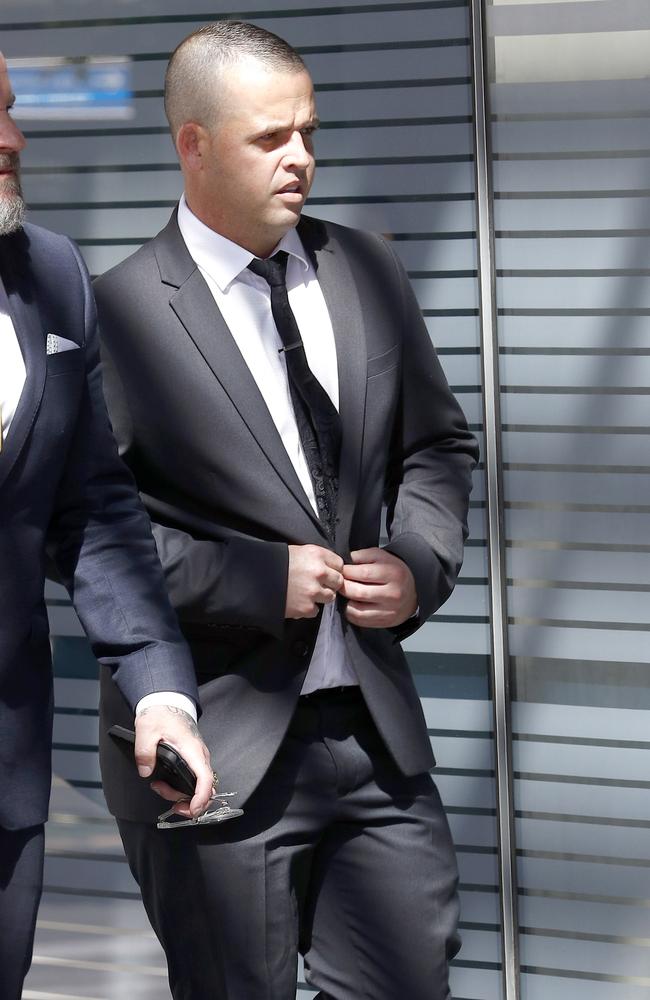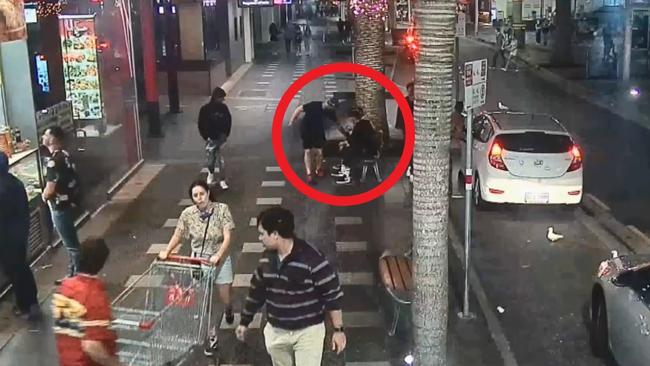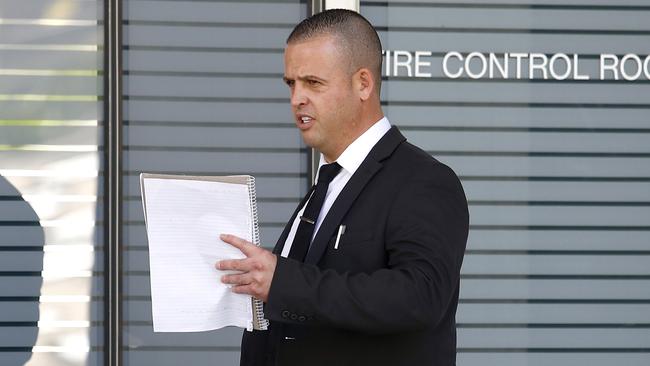Queensland Court of Appeal rejects Ricky Lefoe bid to quash Ivan Susin conviction
‘Hot chip’ coward punch killer Ricky Lefoe has copped a sharp slapdown in his appeal against a conviction for the death of a Brazilian man in a kebab shop brawl.

The Queensland Court of Appeal has rejected ‘hot chip’ killer Ricky Lefoe’s bid to quash his conviction for a vicious coward punch that took the life of a Brazilian student in a brutal early morning brawl.
Lefoe floored 29-year-old Brazilian Ivan Susin with a single punch during a fight sparked by Lefoe’s friend Shaun Simpson stealing a hot chip from Mr Susin’s friends outside a Gold Coast kebab shop in September 2019.
Mr Susin suffered a fatal head injury from the knock and died 11 days later in hospital.
The fatal brawl ended up at trial, with Lefoe arguing he had acted lawfully in throwing the punch to save Mr Simpson.
During the brawl, Mr Susin threw a punch, which failed to land, at Mr Simpson, and Lefoe reacted immediately, hitting Mr Susin once in the head.
The whole incident was captured on CCTV and there was no dispute Lefoe struck Mr Susin, causing him to fall and crack his head on the hard concrete.
A jury found Lefoe, from Sydney, guilty of manslaughter in February 2023 and he was sentenced to eight years in prison.
But in July this year, Lefoe appealed the conviction.
Lefoe’s barrister, April Francis, had argued the prosecution had materially misstated the facts of the case by telling the jury Lefoe did not fear for Mr Simpson’s life, or fear that Simpson might suffer grievous bodily harm from Mr Susin’s attack.

Lefoe’s defence team also argued the trial judge, Justice Helen Bowskill, had failed to direct the jury as to what constituted grievous bodily harm.
But on Tuesday, Judge Lincoln Crowley shot down those arguments and maintained the original conviction following months of consideration.
“It is plain that the appellant (Lefoe) did not give direct evidence that he thought Mr Simpson might be killed or suffer grievous bodily harm,” Judge Crowley ruled.
“While direct evidence is not necessary and a defendant’s state of mind in this respect may be established by inference, that does not make the prosecutor’s statement wrong or inappropriate.
The fact that it may have been open to the jury to infer from the evidence, including the appellant’s testimony, that had Mr Susin’s punch connected it was capable of causing grievous bodily harm to Mr Simpson, or to draw an inference about the appellant’s subjective state of mind in that respect, does not show that the prosecutor misstated the evidence.”


Judge Crowley also defended the trial judge’s directions to the jury.
“While the trial judge did not instruct the jury in terms of the full definition of ‘grievous bodily harm’ it is not correct to say that her Honour gave no direction on the point,” Judge Crowley said.
“The trial judge directed the jury that ‘for your purposes, grievous bodily harm is really serious injury’, and later referred to ‘very serious injury’.
“It may have been that the trial judge used these shorthand descriptions to simplify the issue or to ensure a level of consistency with the directions her Honour gave on compulsion, which required the jury to consider whether ‘serious harm or detriment’ was threatened to Mr Simpson.”
Lefoe’s appeal also argued directions from the trial judge to the jury had “withdrawn” self-defence from an unprovoked assault as a potential consideration.
But Judge Crowley rejected this argument, noting Lefoe’s defence team had relied on different self-defence arguments at the trial.

“In his closing address, counsel for the appellant urged the jury to consider that the appellant was aiding Mr Simpson in self-defence, did not suggest that Mr Simpson was entitled to act in self-defence against an unprovoked assault and did not submit that the appellant may have been acting in his own self-defence,” Judge Crowley said.
Judge Crowley also said Mr Susin did not present a serious threat to Lefoe or Mr Simpson, in part because of his Mr Susin’s level of intoxication.
Mr Simpson and Mr Susin were intoxicated at the time, though Lefoe was not.
“In my opinion, the appellant’s characterisations of Mr Susin’s conduct and the threat he posed are grossly overstated,” he said.
“While it may be accepted that he acted aggressively towards Mr Simpson by throwing a punch at his head, he did not present much of a threat to Mr Simpson at the time the appellant struck him.
“As noted previously, Mr Susin had his arms down and was off-balance at that point.”
